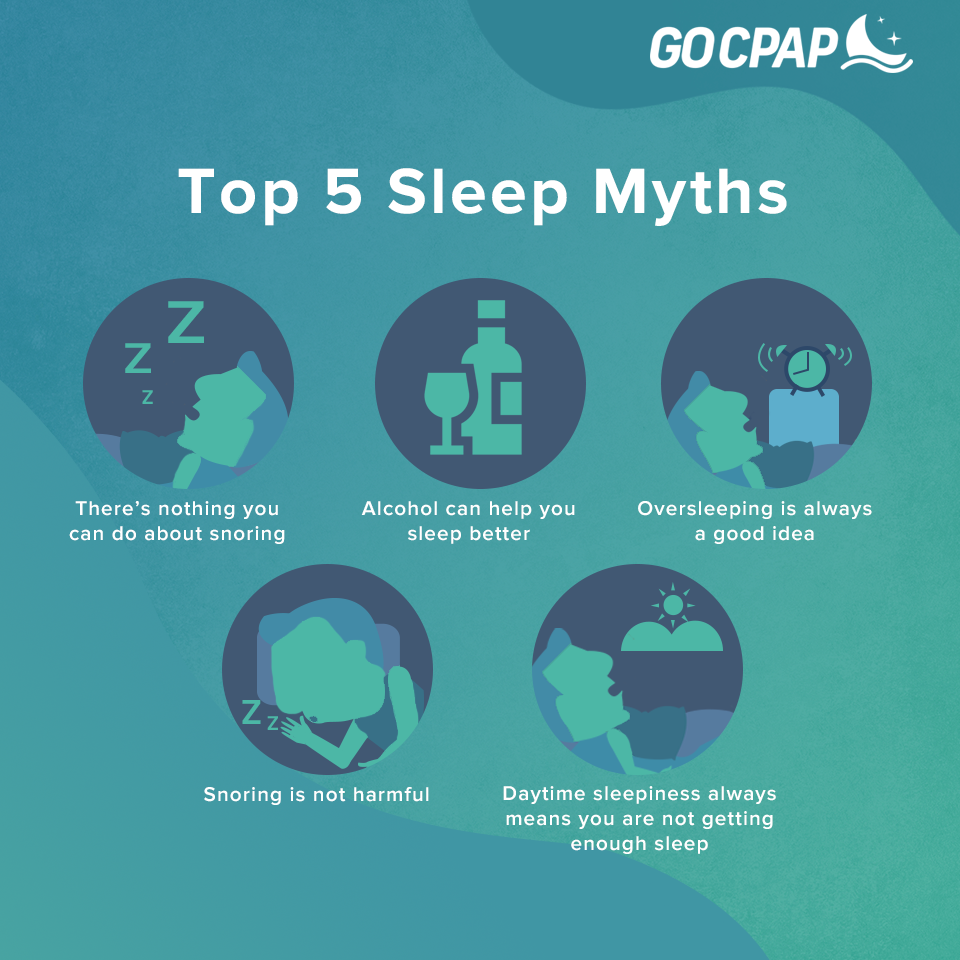Jul 14th 2020
Top 5 Sleep Myths: How CPAP Can Help You Get Better Sleep
Top 5 Sleep Myths: How CPAP Can Help You Get Better Sleep
Do you ever find yourself counting sheep late at night? When it comes to maintaining good sleeping habits, most of us probably think that we’re experts. The truth is that there is a wide range of misinformation online when it comes to getting better sleep.
Lucky for you, we have compiled a list of the top five common sleep myths. Read on to figure out which part of your nighttime routine costs you a few extra minutes with the Sandman.

1. There’s nothing you can do about snoring
Snoring is definitely a nuisance, especially for your bed partner. It is common among a number of people but this does not mean that you can’t do anything about it.
Whether it’s CPAP therapy, white noise machines, or pills, be sure that you consult first with your doctor. Numerous stop-snoring aids in today’s market are not supported by any scientific claims. Furthermore, you can also implement certain changes in your lifestyle, such as quitting smoking or changing your sleeping position.
2. Alcohol can help you sleep better
Most adults typically wind down for bed with an alcoholic drink. Whether it’s a bottle of beer or a glass of wine, note that the effect of alcohol on your body is a lot more complicated. Yes, it helps you feel drowsy because alcohol is a depressant. It helps the body produce adenosine, which is responsible for increasing your sleepiness - and then it wakes you up.
Once the adenosine in your body wears off, it will disrupt your sleep, most likely during your REM phase of sleep. Since REM sleep helps boost memory and concentration, drinking alcohol before bed can lead to daytime fatigue.
3. Oversleeping is always a good idea
More sleep does not necessarily mean better. In fact, oversleeping has been linked to a number of health issues, such as heart disease, diabetes, and depression. In a study by SLEEP, those who sleep more are 25% more likely to gain 11 pounds over 6 years compared to those who sleep the average number of hours.
4. Snoring is not harmful
For most people, snoring is normal but this does not mean it’s harmless. Some of the potential health issues caused by snoring include chest pain at night, excessive daytime fatigue, high blood pressure, and morning headaches. Pay attention to your snoring habits or that of your partner because these symptoms can indicate that you or your partner may have sleep apnea. In fact, 75% of people who snore have obstructive sleep apnea, which could potentially lead to heart disease.
Obesity can also indicate that you may have sleep apnea. Those who have a higher risk for cardiovascular diseases or high blood pressure may also have sleep apnea. Your doctor will ask questions about the nature of your snoring habits to identify whether or not it is already an indication of a more serious medical condition.
5. Daytime sleepiness always means you are not getting enough sleep
Even if you’ve had enough sleep, it is still possible to experience excessive daytime sleepiness. This could already be a sign of an underlying medical condition, such as sleep apnea or narcolepsy. Consult your doctor to get a proper diagnosis.
They may recommend CPAP therapy to help treat sleep apnea. While some find it uncomfortable to wear a mask while sleeping, GoCPAP offers a wide range of CPAP mask types that allows enough freedom for both side and back sleepers.











